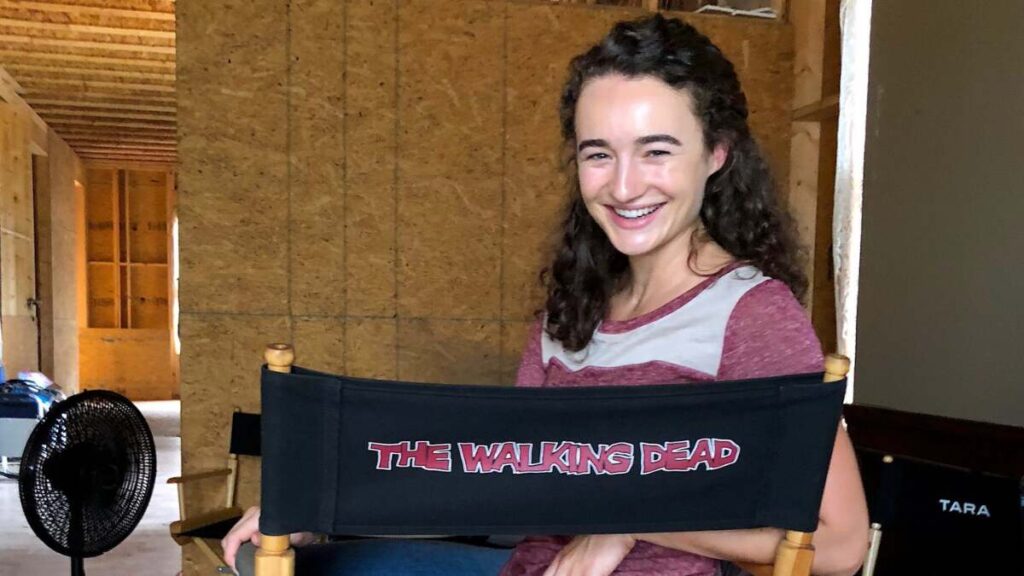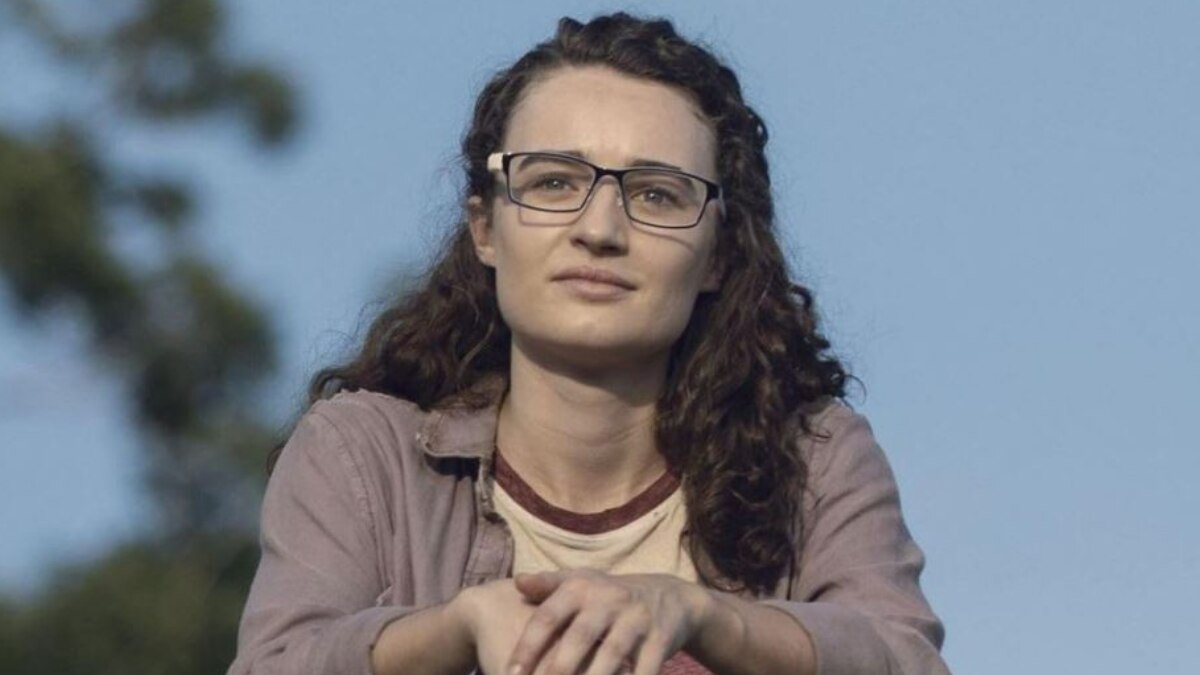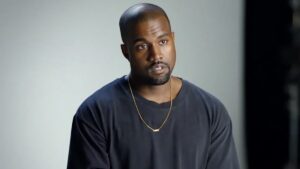In Season 9 of The Walking Dead, there’s a moment — quiet, fleeting — when Addy, a young survivor in the Hilltop colony, pauses in the middle of chaos. It’s the kind of scene easily overshadowed in a show full of brutal survival and epic battles. But Kelley Mack gave it weight. With just a glance, a breath, a subtle shift in her expression, she told a story far beyond the script. It was clear then: this actress, though new to many, had something special.
Kelley Mack, who portrayed Addy with haunting vulnerability and grounded strength, passed away on August 3rd at the age of 33. Her death, following a battle with glioma of the central nervous system, has left fans, friends, and peers mourning a life — and talent — gone too soon.
Yet this is not just an obituary. It’s a reflection on impact. On how someone with only minutes on screen can be remembered just as vividly as the leads. On the legacy an artist leaves behind, even when the spotlight didn’t shine long. In a world that often equates fame with value, Kelley Mack’s story reminds us: brilliance isn’t about duration — it’s about presence.
From Camera to Character: Kelley Mack’s Creative Origin Story
Before she became Addy on The Walking Dead, before she stood under the lights of the Chicago International Film Festival, Kelley Mack was just a curious kid in Cincinnati, Ohio — a child who received a mini camcorder for her birthday and never really put it down.
That gift didn’t just spark an interest; it lit a path. While other kids played house, Kelley was directing short films in her backyard, recruiting her siblings and neighborhood friends as cast. She wasn’t chasing fame. She was chasing stories — eager to explore how moments could be captured, shaped, and felt.
That early obsession matured into intention. After graduating from Hinsdale Central High School, she pursued film seriously, enrolling at Chapman University’s Dodge College of Film and Media Arts in California — a program known for nurturing future storytellers behind and in front of the camera. There, Kelley didn’t just study acting; she studied cinematography, learned the mechanics of filmmaking, and developed the eye of a director. Her classmates recall someone who was as collaborative behind the lens as she was expressive in front of it.
By the time she graduated, she wasn’t just an aspiring actress — she was a filmmaker in the truest sense. Her work in commercials, short films, and voiceover projects reflected that dual identity: performer and creator, artist and technician.
Kelley Mack’s creative origin wasn’t built on spotlight dreams, but on a quiet, enduring love for the moving image — a love that would carry her from backyard shoots to post-apocalyptic television and far beyond.
Breaking Through the Screen: How Addy Became a Cult Favorite
In the sprawling universe of The Walking Dead, where dozens of characters come and go in a single season, it takes something rare to make a supporting role stick. Addy, portrayed by Kelley Mack, had only a handful of episodes in Season 9 — yet fans remember her with a kind of reverence usually reserved for series regulars.
Introduced as one of the Hilltop teens, Addy was part of a younger generation growing up in a post-apocalyptic world. She was thoughtful, observant, and brave in a quiet way. But what Kelley Mack brought to Addy was something even deeper: a sense of interiority. You could see it in the way she lingered on her lines, how her expressions shifted between fear and conviction, or the way her eyes searched the faces of those around her — always reading, always absorbing.
One scene that continues to resonate is her final moment in “The Calm Before.” As the camera pans across the Whisperers’ brutal display, Addy’s severed head appears among the pikes. It’s a devastating reveal — made more painful by the knowledge of who she was becoming before it all ended. That image, haunting and still, struck viewers hard. “They did Addy so dirty,” one fan wrote on Reddit. “She had so much potential.”
Another viewer posted on X (formerly Twitter): “Addy from Hilltop was only in a few episodes, but she had real soul. Kelley Mack made her feel real. Not many can do that with so little screen time.”
In an ensemble packed with hardened warriors and tragic antiheroes, Addy stood out by being soft-spoken, thoughtful — a subtle reminder of the kind of innocence the world had lost. Kelley Mack didn’t just play a character. She gave fans someone to root for, someone to mourn, and someone to remember.
Beyond the Apocalypse: Other Roles That Showed Her Range
While The Walking Dead introduced Kelley Mack to a wide audience, her talent was never confined to the world of survival horror. Long before — and after — her stint as Addy, Mack quietly built a portfolio that revealed remarkable range, technical precision, and creative depth across genres and platforms.
In Chicago Med, she portrayed Penelope Jacobs in a brief but emotionally charged storyline during Season 8. Though appearing in just one episode, Mack portrayed a young woman grappling with fear and uncertainty in the sterile chaos of an emergency room — a far cry from Hilltop’s muddy battlefields. She brought a grounded realism to the procedural format, slipping seamlessly into the show’s high-stakes rhythm.
On FOX’s 9-1-1, she appeared in another standalone role — again stepping into a high-intensity narrative environment with ease. Kelley’s performances in these network dramas showed her ability to embody everyday characters caught in extraordinary circumstances — always believable, always human.
But her versatility extended beyond scripted television. As a voiceover artist and commercial actor, Mack lent her presence to national campaigns for Dr. Pepper, Ross Dress for Less, Dairy Queen, and Chick-fil-A. Whether she was the friendly voice behind a brand or the face of a 30-second storyline, she delivered with clarity and charisma. It’s a subtle art — being both relatable and memorable in under a minute — but she made it look effortless.
Then there were the indie projects, like Broadcast Signal Intrusion, a psychological thriller that premiered at the 2021 Chicago International Film Festival. Here, she entered a darker, more experimental realm — showing that she was just as at home in the world of arthouse cinema as she was in mainstream media.
Together, these roles formed a mosaic — not just of an actress working steadily, but of a storyteller unafraid to explore every edge of her craft.
“She Was Just Getting Started”: Reflections from Colleagues and Fans
When news of Kelley Mack’s passing was shared, the outpouring of love was immediate — and intimate. Colleagues, fans, and friends didn’t just remember her roles; they remembered her. The woman behind the camera. The kindness between takes. The quiet fire of someone who was only beginning to show the world what she was capable of.
“What an incredible human,” wrote The Walking Dead co-star Alanna Masterson in a heartfelt tribute on Instagram. “So proud to have fought alongside her in our final episode together.” The message was accompanied by a still of the two women on set — their faces worn, their characters defiant. In that shot, you could feel both fiction and friendship.
Others echoed the sentiment across social media:
“She brought so much soul to a small role. You could tell she cared deeply — about the work and the people.”
“Gone way too soon. But the warmth she left behind? That stays.”
On Reddit, one user described her as “a bright light in the Hilltop storyline,” while another recalled meeting her briefly at a fan convention: “She treated everyone like an old friend.”
It’s easy to measure a career in credits. But Kelley’s legacy, as those who knew and admired her will tell you, is better measured in presence — in the way she made people feel seen, heard, and remembered, even in the smallest moments.
Talent Interrupted: Understanding Glioma and Its Impact
Glioma is a type of tumor that arises from the glial cells of the brain or spinal cord — the cells that support and protect the neurons responsible for everything from memory to movement. According to the Mayo Clinic, gliomas can be aggressive, infiltrating healthy brain tissue and impacting vital functions depending on their location. For young adults, a diagnosis is particularly devastating: it strikes during years often defined by ambition, creativity, and growth.
Kelley Mack was just 33 when she passed away after what her family described as a brave and peaceful fight with glioma of the central nervous system. In a statement shared on CaringBridge, they wrote of her strength and spirit: “Such a bright, fervent light has transitioned to the beyond, where we all eventually must go.”
Her illness was not public for most of her journey. Those close to her say she continued creating, connecting, and living with intention — even as her body endured a private battle. That dignity, that quiet grace, was part of what made her who she was: someone who lived her story fully, even when the script took an unexpected and unfair turn.
For all the talent glioma has stolen, Kelley Mack’s story adds another urgent, human face to the statistics — and reminds us how precious and fragile creativity truly is.
Kelley Mack and Other Brief-Legacy Stars
Kelley Mack’s passing at 33 places her among a heartbreaking but powerful lineage of young actors whose careers were cut short — yet who left undeniable marks on the industry and its audiences. Like Anton Yelchin, Naya Rivera, and Cameron Boyce, Mack’s legacy isn’t measured by volume of work, but by the vividness of her presence — brief, unforgettable, and deeply human.
Anton Yelchin, known for his roles in Star Trek and Like Crazy, brought a quiet intensity to every character. Naya Rivera, beloved for her fearless portrayal of Santana Lopez in Glee, redefined what it meant to be bold and vulnerable on screen. Cameron Boyce lit up Disney Channel with talent and charm beyond his years. And Kelley — though her IMDb may list fewer credits — brought a raw, observational realism to her roles that made even brief scenes linger.
Each of these actors connected deeply with fans — not just because of who they played, but how they played them. Kelley Mack may not have had the years to grow into a household name, but like the peers she now stands beside in remembrance, she made the time she had unforgettable.
When You See a Star Before the World Does
I remember the first time I saw Kelley Mack on screen. It was during a rewatch of The Walking Dead’s ninth season — not a marquee moment, not a headline death, just a quiet scene at Hilltop where Addy helps organize a school lesson for the community’s children.
She didn’t have many lines. But she didn’t need them.
There was something in her stillness — the way her face held both weariness and warmth — that made me stop scrolling and watch. It’s rare for a supporting actor to steal attention in an ensemble like that, but Kelley did. She brought a kind of lived-in honesty that couldn’t be taught. You either have it or you don’t. And she had it.
As a longtime entertainment editor, I’ve seen a lot of talent pass through guest roles, but there’s a specific type — the ones who make you Google them the moment their scene ends. Kelley was one of those.
When I learned of her passing, I felt the same pang I’ve felt for actors like Anton Yelchin or Naya Rivera — that familiar ache of what might have been. But the truth is, Kelley Mack had already arrived. She didn’t need 50 credits to prove she belonged. One glance, one line, one moment — that was enough.
She was the kind of actor you didn’t forget — even if you didn’t know her name yet.
What Kelley Mack Leaves Behind
Kelley Mack’s legacy isn’t confined to the characters she played — it lives on in the creative sparks she ignited in others. For aspiring actor-creators, especially young women navigating the competitive, often harsh world of television and film, her story offers both a roadmap and a reminder: talent is only part of it — heart matters more.

At Chapman University’s Dodge College, where she earned her degree in cinematography, Kelley wasn’t just a student of craft — she was a collaborator, often offering encouragement and input on classmates’ projects, whether she was cast or not. One former peer recalled her as “the kind of person who stayed late to help wrap cables even if it wasn’t her shoot.”
She brought that same spirit to her professional life. With five producer credits to her name, Kelley quietly carved out space for herself behind the camera — a move that inspired other actor-filmmakers to consider telling their own stories instead of waiting to be cast in someone else’s.
In the wake of her passing, friends have encouraged donations to brain tumor research — a cause that, like her, doesn’t always get the spotlight but desperately needs it. Her CaringBridge memorial speaks not just to loss, but to legacy: a woman who gave generously, created fearlessly, and made others feel possible.
Kelley Mack may be gone, but for the storytellers rising in her shadow — she’s still showing the way forward.
A Quiet Force in a Loud Industry
Kelley Mack didn’t demand the spotlight — she illuminated it. With a glance, a line, a quiet breath on screen, she reminded us that the most powerful performances don’t always shout. Sometimes, they whisper — and still echo.
In an industry that often values visibility over depth, she was the kind of artist who made presence feel like purpose. Whether she was comforting a child on The Walking Dead or voicing a line in a commercial, Kelley brought something rare: truth.
Her story may be unfinished in the way we measure careers, but not in the ways that matter. She left warmth in her wake. She left art. She left people better than she found them.
And that — not airtime, not accolades — is the truest kind of legacy.
Nishant Wagh is the founder of The Graval and a seasoned SEO and content strategist with over 15 years of experience. He writes with a focus on digital influence, authority, and long-term search visibility.















3 thoughts on “The Walking Dead’s Addy: Kelley Mack’s Brief but Impactful Legacy in TV”